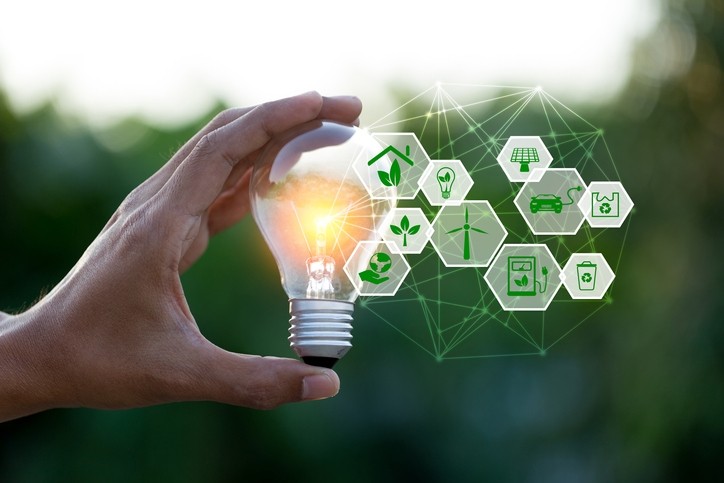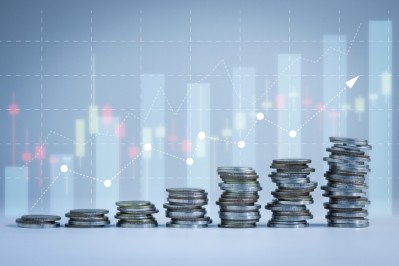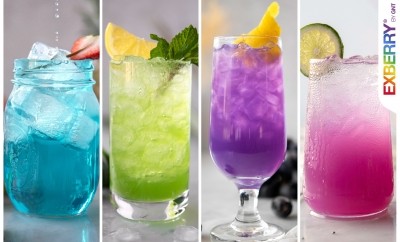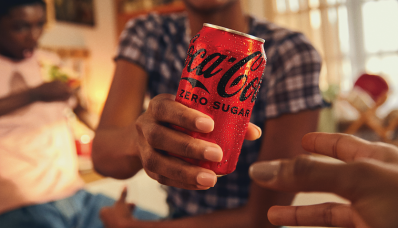Guest podcast
AB InBev and Coca-Cola want to build a playground for sustainable innovation with 100+ Accelerator

Last year, AB InBev, Coca Cola, Colgate-Palmolive and Unilever – four of the world’s largest CPG companies – decided to work together to solve some of their thorniest sustainability issues through an initiative called the 100+ Accelerator.
In this episode of Rabobank’s Liquid Assets Podcast - which you can find below - Molun Zhang of The Coca-Cola Company and Carolina García Arbeláez of AB InBev discuss their companies’ biggest sustainability challenges - and how the accelerator is helping to solve them.
From pilot to commercial scale
At its core, the 100+ Accelerator is a platform that helps these corporates identify and pilot sustainable technologies, while supporting and training to the startups that created them. Each year, these four large companies work together to identify their most pressing sustainability challenges – some examples include circular economy, smart agriculture, water stewardship and climate action – and call on startups to apply to the program. Organizers say the 100+ Accelerator has received thousands of applications from startups since its inception, but only 30-40 startups are selected to participate each year.
Unlike most programs created to help large corporates engage with startups (like corporate venture capital funds), the 100+ Accelerator is not currently focused taking an ownership stake in the startups that participate in the program. Instead, each startup is assigned to one of the four corporate partners and receives up to 100.000 USD, equity free, to execute a pilot project within that corporate’s supply chain.
The program’s stated goal is to help startups graduate from the pilot program and graduate to a larger commercial contract. “We just really want the innovation in sustainability to get to scale faster, and that is, for us, our definition of accelerator,” said Molun Zhang, senior manager of R&D, experimentation and external technology acquisition at The Coca Cola Company. “It's not a monetary acceleration; it is really a physical acceleration of the technology at scale.”
Why work together?
The 100+ Accelerator was founded in 2018 by global brewer AB InBev, but the value of inviting other companies to participate in the program quickly became clear. “We are all sharing the same challenges, so it makes a lot of sense to partner together,” explained Carolina Garcia, Global Sustainability and Innovation Director at AB InBev and co-founder of the 100+ Accelerator. “Sustainability cannot be competitive because we all are in the same boat.”
Since these large companies share many of the same processes and sustainability challenges within their supply chains, working together reduces the cost and effort of testing new technologies and innovation. AB InBev, Coca Cola, Colgate-Palmolive and Unilever are expected to share the results of each pilot with one another, and once a pilot is finished, successful startups are encouraged to work with whomever they choose. “Many of the startups that are working with us in the 100+ Accelerator are applicable for Coca Cola, Unilever, Colgate, and AB InBev, but maybe [only] one of us [will] pilot with them,” continued Garcia. “Then if it works for AB InBev, well, Coca Cola can work with them afterwards.”
The startups participating also have a lot to gain from the program. “With our purchasing power, with our global footprint, we can help a company grow at a pace that they had never imagined,” said Garcia on the Liquid Assets Podcast. In addition to the pilot and exposure, each startup in the program receives training on a variety of topics such as presentation skills, contract negotiation and financial management.
In this episode:
- Representatives from AB InBev and Coca Cola explain why the 100+ Accelerator was founded, how it operates and the rationale for these four corporates to work together.
- Identify the largest sustainability challenges Coca Cola and AB InBev are trying to manage.
- The challenges of implementing sustainable innovations within a large corporate environment and some best practices to get buy-in from business groups that historically did not have to focus on sustainability issues.
- Examples of the technologies and innovations that have been brought to scale through the 100+ Accelerator and how they have impacted the companies’ sustainability goals, the efficiency of their operations and their profitability.
(If the embedded link above does not work on your browser, you can find the episode via Apple Podcasts here)
Success story
One startup that successfully moved through the 100+ Accelerator is EW Tech. EW Tech, who is based in Bogota, had developed a process that utilizes a mixture of salt, water and electricity to clean and disinfect reusable bottles, also called cleaning in place (CIP). Resuable bottles represent the majority of AB InBev’s business in Colombia, but the CIP process typically large amounts of hot water combined with harsh chemicals like caustic soda and nitric acid.
EW Tech ran its pilot with AB InBev at one of their smaller, regional breweries in Colombia. The results were very impressive. According to Ms. Garcia, EW Tech helped reduce water usage during CIP by 80%, dramatically reduced energy use (since the process did not require cold water), eliminated virtually all harmful chemicals from the process and reduced washing time by 50%. The program was so successful that
AB InBev quickly scaled the technology to their largest brewery in Colombia (representing nearly 40% of total domestic beer production). Also, true to the program’s intent, EW Tech is now working with Coca Cola’s bottling system as well as with Pepsi, the dairy industry and even the poulty industry.









